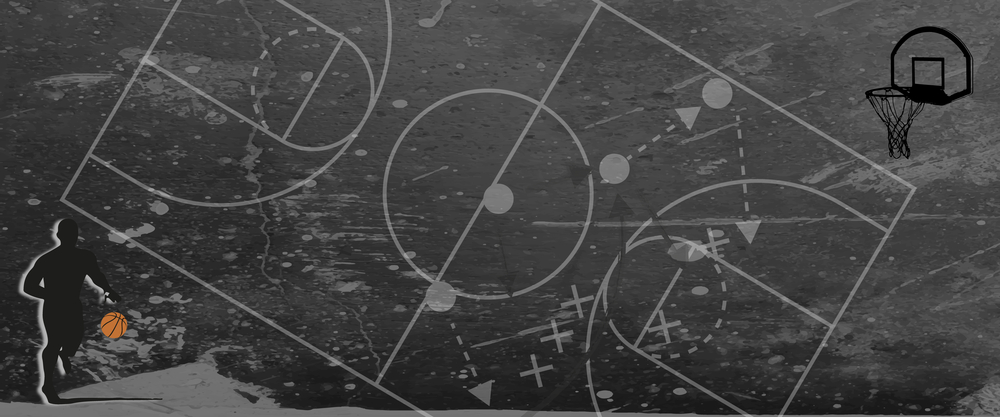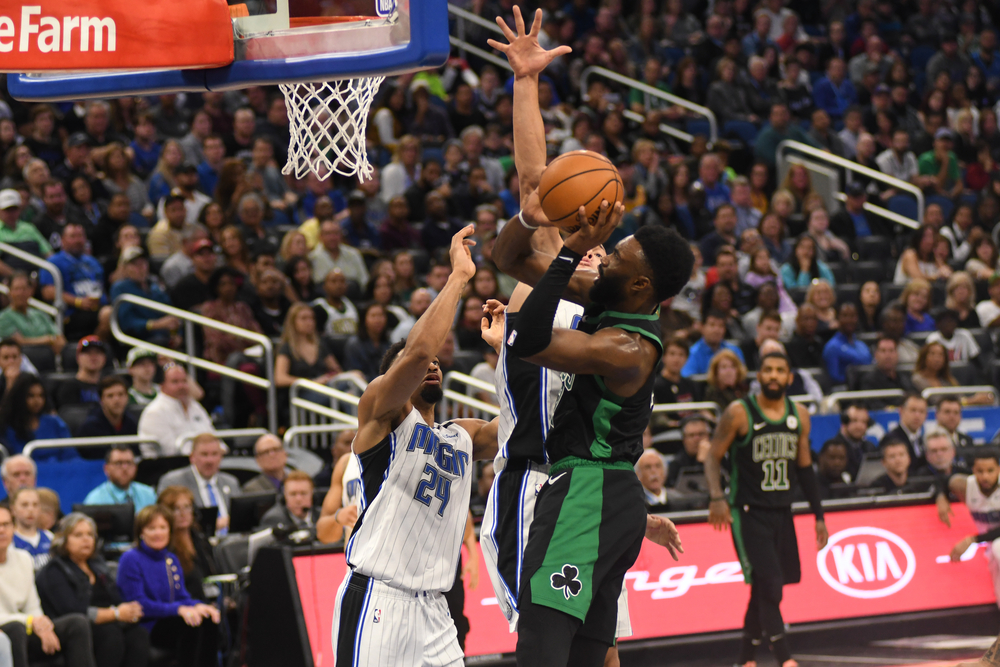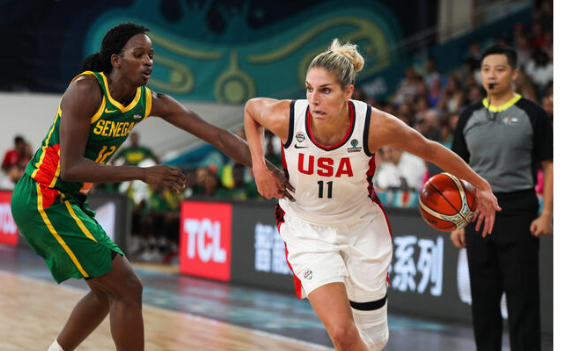
Andre Drummond, a center for the Chicago Bulls, wanted everyone to know that he was dealing with mental health difficulties after missing a game last month.
“Asking for assistance is OK. The feeling is acceptable. Emotions are acceptable,” Drummond remarked.
Forward Aaron Gordon of the Denver Nuggets revealed that being left out of the All-Star Game “hurt.” As a result, he used his therapist’s suggested “journaling” exercise to help him overcome the disappointment.
Dillon Brooks, a player for the Memphis Grizzlies, said he planned to “get back to my mindfulness practice” to control his temper and avoid receiving too many technical fouls during the playoffs.
Last month, Giannis Antetokounmpo, the standout player for the Bucks, promised to donate $1 million to Milwaukee’s mental health programs. In a 2021 interview with GQ Magazine, Antetokounmpo revealed that he had sought out counseling to deal with pressure in his own life. This month, he told the Milwaukee Journal Sentinel that he had considered giving up basketball in 2020 due to that pressure.
The NBA Vice President of Player Development, Jamila Wideman, stated, “I wouldn’t necessarily characterize it as an endemic unhappiness. I think what I would describe [it as] is an awareness and openness and energy to engage, maybe intentionally and proactively, to be well and stay well.”
The NBA has made talking about mental health and its facets so commonplace that The Athletic contacted the league and all 30 clubs to find out more about the concerted efforts being made to support players to take better care of themselves.
Despite positive shifts in the approach being taken by the NBA, not all significant sports have taken mental health seriously. Austin Meadows, an outfielder with the Detroit Tigers, was put on the 10-day disabled list on April 8th due to anxiety. As part of a mental health vacation, tennis player Naomi Osaka withdrew from the French Open and missed Wimbledon in 2021. Olympic gymnast Simone Biles withdrew from individual competition, citing mental health issues. Recently, a $10 million donation was made to the U.S. Olympic Committee for mental health services. Every team in the NFL is required to have at least one mental health professional on staff.
Starting with the 2019–20 season, the NBA mandated all clubs to establish a formal partnership with a registered psychiatrist to secure medication, which could be used to treat more severe concerns, and a mental fitness practitioner, such as a psychologist or therapist. All players receive free access to the Headspace mindfulness app, and teams must carry a written action plan for mental health emergencies and a “playbook” containing wellness and health activities.
Nico Harrison, the General Manager of the Mavericks, stated, “We saw an increasing need for it, but we also believe in it.” Players are utilizing the service that we are offering more and more. It is just my ignorant theory, but this generation has an opportunity to truly connect with their emotions because of social media and the addition of COVID-19. Unlike my generation, when you were supposed to struggle through it, it’s now acceptable to genuinely talk to people about how you’re feeling.
According to Wideman, who is also actively involved in the NBA’s “Mind Health” mental health campaign, all 30 teams comply with NBA regulations. The Athletic tried to survey every team to determine how each complied. It is evident that several organizations have gone above and beyond what is required, even though some clubs chose not to respond at all and others only responded sparingly due to privacy concerns or qualms about giving up a competitive edge.
- For the past 20 years, the Mavericks have employed a full-time sports psychologist. This season, they hired another, who travels with the team and maintains a pool of other experts that are available for consultation.
- The Los Angeles Lakers have a mental health director overseeing four employees.
- Since the beginning of the pandemic, the Philadelphia 76ers have increased the number of mental health professionals on call to four. According to a team representative, the Sixers felt it was best to have a panel of players with various experiences and specialties to reflect the diversity of their roles. In addition to their three medical professionals on staff, the Washington Wizards have access to numerous psychologists and therapists because they collaborate with MedStar, a nearby healthcare provider. Since the pandemic began, the Wizards have also increased the number of their employees.
- According to a team official, the Miami Heat has seven psychologists on staff, although several players also see other therapists.
- The Bulls offer counseling to all of their staff members who work in the business department as well as their coaches and players.
- The Phoenix Suns have a psychiatrist and a sports psychologist on staff. Two mental health professionals with the Charlotte Hornets, Detroit Pistons, Orlando Magic, Toronto Raptors, and San Antonio Spurs are also on staff for each of these teams. The Pistons have additional access to mental health doctors thanks to Henry Ford Health.
Many of these policies can be traced back, at the very least, to significant actions taken five years ago by Kevin Love and DeMar DeRozan. During the first month of 2018, both men came clean about their battles with mental health. Love penned a first-person story in The Players’ Tribune about his battles with debilitating anxiety, which included a panic episode that kept him out of a Cavaliers game. Meanwhile, DeRozan tweeted that he was fighting depression (and later elaborated on the experience during a discussion with The Toronto Star).
Dr. Kensa Gunter, the director of the “Mind Health” program and Atlanta Hawks psychologist, said, “Think about the tweet from DeMar in 2018 and the story that Kevin Love shared; we heard them and realize we need to be more intentional about ensuring that resources are there at the team level.”
“I believe there’s just a greater awareness and desire to ensure that these types of resources are available as we continue to have this conversation and hear players share their personal stories, which may include how they have navigated their mental health at different points in their lives,” Gunter explained.
The teams’ buses arrive at Cleveland’s Rocket Mortgage FieldHouse and unload onto an ancient hardwood basketball court that the Cavaliers utilize for private events. Players turn right from that court and proceed down a narrow hallway adorned with cream-colored walls and fluorescent lights. The dressing room is on the left, while the press conference room and executive holding area for the visiting team are on the right.
Another locker room is in that same hallway, next to the tunnel that minor-league hockey players use to lumber toward the ice in their skates. This room has a sign that says “Visiting Team, Fitness, and Wellness Room” on the entrance during Cavs games.
It’s just a locker room once more. However, inside is where a player can clear his head, meditate, overcome anxieties with a psychologist, and get away from teammates, coaches, the media, and spectators.
All 30 teams must provide their opponents access to this “fitness and wellness” area. This most recent rule for regulating mental health was added by the league at the beginning of this season.
The aforementioned Miami Heat player, Kevin Love, who is also a former Cavalier, said, “I have (used these rooms) before, but for me, it’s only been for visualization stuff or meditation. I like to do my therapy away from the arena, so I don’t think I ever used it for therapy before or after games—and I think most people would say the same thing.”
One in five Americans will experience dealing with a mental disease in any given year, one in five children will have experienced a debilitating mental illness at some point in their lives, and one in 25 Americans will live with a significant chronic mental disease, according to the Centers for Disease Control and Prevention.
According to Gunter, identifying 450 NBA players needing assistance does not single them out. She remarked, “These NBA players are people.”
Players have performance anxiety, according to Gunter. In addition, their upcoming contract is a concern for them. According to her, it was challenging for many of us to get used to Zoom calls and working from home, and it was also difficult to play through the height of COVID-19 in 2020 and 2021.
According to Gunter, a notable distinction between the wealthy, tall, and frequently featured NBA players and the general population is the extent to which they live in public. Thousands of supporters in the stands, hundreds of media outlets, and millions of people on social media all offer criticism. The players’ pain may manifest as a shooting slump, a missed defensive assignment, or resentment against the referee.
“People believe that [NBA players] can simply add fame, wealth, or Twitter followers to their lives, and everything will magically get better,” Love remarked. “But regrettably, that isn’t how brains and souls operate. It will not alleviate a chemical imbalance if you have one.”
Love, 34, is currently playing in his fifteenth professional season. To address the youth mental health epidemic, his name-branding philanthropic foundation provides free social-emotional learning curricula to nonprofits and schools nationwide.
Love explained that many younger players joined him in frequent meetings with team psychologist Mayur Pandya once or twice a month, not only to treat mental illness, but also to talk through performance anxiety related to the high-profile job. Love spent his final few seasons in Cleveland. He was bought out by the Cavaliers in February and signed with the Heat.
In an interview with The Athletic, Love said that the remarks he and DeRozan made about themselves years ago likely made it easier for more players to express their own emotions and struggles. Love also considered the recent instances of Gordon, Brooks, and Antetokounmpo making donations.
According to Love, he is unable to determine if players are generally happier now than they were when he first joined the league. He claimed that, in a league that was formerly “emotion-phobic”, there is “definitely a heavy emotionality” that has proliferated since he first joined.
Love remarked, “Not many guys choose to be vulnerable. You look at that Memphis squad. They’re despised for being physical, challenging, and all that stuff. However, it becomes a superpower if they admit that they have those kinds of issues and are prepared to address them. I mean, you can’t turn me against myself. Do you understand what I mean? Although some breaks are inevitable, what counts most is what comes after.”



